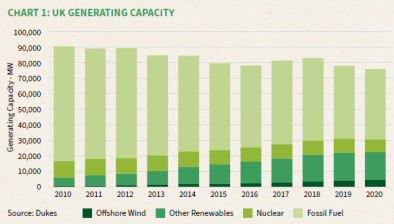Scottish construction ‘freed from the constraints of referendum uncertainty’
 Commercial activity continues to ramp up at a marked pace, driving construction growth into the fourth quarter of 2014, according to the latest figures from industry analysts Glenigan.
Commercial activity continues to ramp up at a marked pace, driving construction growth into the fourth quarter of 2014, according to the latest figures from industry analysts Glenigan.
The Glenigan Index for November, which covers projects starting on site during the three months to October, has increased by 4 per cent compared to a year earlier. This figure is up slightly from 3 per cent in September and marks the 17th consecutive monthly Index rise.
Office and retail starts both saw a 25 per cent year on year increase, with the commercial sector boosted by a number of major London schemes, including the £95 million One Mitre Square development which broke ground in August.
In Scotland, a slew of work starting during October has seen Scotland return to growth after four months of declining starts due largely to the uncertainty surrounding the independence referendum.
Allan Wilén, economics director at Glenigan, said: “Commercial and civil engineering work are taking over from housing as the lead drivers of new construction starts.
“This broad footing of construction growth bodes well for the upcoming period of political uncertainty ahead of the general election, and as expectations of an interest rate rise appear to be dampening confidence among UK homeowners.”
Following last month’s dip, the Glenigan Residential Index is hovering just outside of negative territory, recording no change compared to a year earlier.
Private house building remains on the up, despite the recent stall, with starts rising by 15 per cent so far in 2014. In contrast, social housing continues to struggle, with starts flat for the year to date.
This divergence can also be seen within the planning pipeline; during the three months to September the underlying value of private housing approvals was up by 24 per cent, while social approvals were down 24 per cent.
A weakening in industrial confidence has coincided with the first fall in project starts for the sector since July last year. Nonetheless, Glenigan expects this slowdown to be short-lived, with industrial remaining on course to be the fastest expanding sector during 2014.
A substantial flow of prospective industrial projects continues to make its way through the planning pipeline, with the underlying value of projects receiving approval up 42 per cent in the three months to September.
As in recent months, the northern English regions, Northern Ireland and Wales are gaining ground fastest, all seeing double digit growth over the last three months.
By contrast, the East and South West of England saw starts fall back compared to a year ago, while the South East has kept pace with the UK average of 4 per cent expansion.
For the first time since July last year, London recorded a fall in project starts. However, Glenigan data points to momentum in the capital remaining. After a 21 per cent rise last year, the capital is set to achieve double digit growth once again over 2014 as a whole.
The monthly Glenigan Index is based on extensive research of every construction project starting in the UK over the previous three-month period, providing an indicator of developing activity and future output in the industry.






















